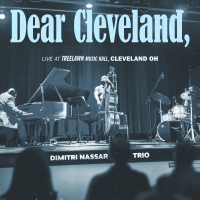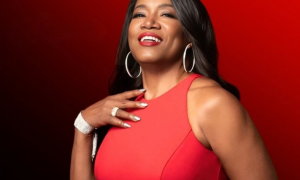Over the years, there is wide variety of instrumentation and sound in Coleman's bands. For many devoted listeners, his original quartet remains the standard by which to assess the music of his other groups. Here is a clip of that band reunited in 1987 for a festival in Spain. Don Cherry is the trumpeter, Charlie Haden the bassist, Billy Higgins the drummer. Coleman's solo is a fine example of his ability to improvise little melodies that are sometimes more fetching than the tunes he writes.
YouTube has three other pieces of video from that concert. To find them, go here.
When Coleman was less than a decade into his controversial career, I wrote about what stands as one of his most riveting recordings. In it, I addressed some of the issues swirling around him as the jazz community exalted and excoriated him. The piece was for Jazz Review, a radio program I did on WDSU in New Orleans in the sixties. It is included in Jazz Matters: Reflections on the Music and Some of its Makers.
1966
Ornette Coleman, Live At The Golden Circle (Blue Note)I think it's safe to assume that most people, even most jazz listeners, are not familiar with the music of Ornette Coleman. You may have heard about the controversy that has ripped through music the past six years because of Coleman's startling style and his influence on other players.
Ornette Coleman plays alto saxophone, self-taught, and he recently took a couple of years off to teach himself trumpet and violin as well. In the wake of his debut in the late fifties, there erupted a string of nonsense--played, written and spoken--which has continued and become even more absurd. One school of critics proclaimed that he had rejuvenated jazz and given it new direction. Another school said he was destroying jazz singlehandedly and that there was no hope for further good times in music. LeRoi Jones, Archie Shepp and a few dozen others in New York have decided that Coleman is a prophet of black supremacy. Coleman himself has been notably reticent on that point.
I think enough time has passed to make it clear that Ornette Coleman is neither genius nor fraud, merely a pretty fair alto player with his own vision. I was going to say, who hears a different drummer. But, as you will hear momentarily, Coleman's drummer, Charles Moffett, is a basic, sort of old-timey drummer working in the avant-garde. And I assume that's what Coleman wants, because in many ways he himself is a basic, old-timey player. He has freed himself from some restrictions of harmony and bar lines, but I don't think he's done it because of some desperate need to escape from formal restrictions.
Coleman is a nave, brilliant musician whose jazz sense is as instinctive as it is learned, who has the blues in his bones and who is an extremely powerful rhythmic player. He is a man in whose name some of the most outrageous and powerful cults have sprung up. Coleman doesn't deserve some of his self-appointed disciples. Nor does he deserve the burden of exaggerated praise that has proclaimed him some sort of messiah.
At any rate, here's Ornette Coleman in his first recording in three years, with Charles Moffett on drums and David Izenzon on bass. This was recorded at the Golden Circle club in Stockholm. It's call “Dee Dee."
“Dee Dee" 9:10
If you're unfamiliar with Ornette Coleman, this is a good record to begin with. If you have followed his career, it gives you an idea what he's been up to since 1962. He is interesting to hear. How much lasting musical value there is in his playing, I just don't know. I've been listening to him for five years, and I have often received tremendous emotional charges from his solos. I'll continue listening. (1966)
I have. And I will.

























